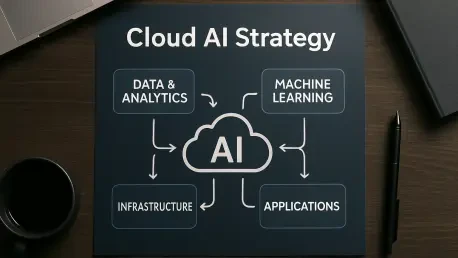
In a world where software development races against ever-tightening deadlines, artificial intelligence has emerged as a game-changer, with a staggering 84% of developers now using or planning to adopt AI tools in their coding practices, according to Stack Overflow’s latest Developer Survey. Picture

Setting the Stage for a Data-Driven AI Revolution In an era where enterprise AI is reshaping industries at an unprecedented pace, a staggering statistic emerges: high-quality data can deliver up to 17 times the efficiency of traditional compute-heavy models, highlighting the transformative power of

In a move that has sent ripples through the tech industry, Google Cloud recently unveiled a profound restructuring within its ranks, announcing significant layoffs in early October this year. Over 100 employees in user experience (UX) research and platform services were let go, marking a strategic

Imagine a world where a small, unassuming device sits on your desk, always listening, observing, and ready to assist with a level of personalization that feels almost human, yet it’s not a smartphone or a typical smart speaker. This is the ambitious vision behind a groundbreaking collaboration

Dive into the world of cutting-edge software development with Maryanne Baines, a renowned authority in cloud technology. With her extensive experience evaluating cloud providers, tech stacks, and product applications across various industries, Maryanne brings a unique perspective to the table.

Setting the Stage for AI-Driven Enterprise Transformation Imagine a world where businesses no longer grapple with the uncertainty of AI adoption, where artificial intelligence seamlessly drives efficiency, innovation, and growth across industries. This is no longer a distant vision but a tangible